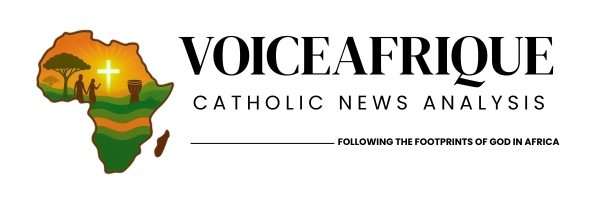During the inauguration Mass of Pope Leo XIV, one detail stood out for me: the visible presence of Black Catholics. Of the six people serving directly at the altar, three were Black — a gesture that perhaps nods to the rising number of vocations in Africa. Yet one must ask: does this visibility amount to genuine inclusivity?
In business, numbers speak. In politics, they vote. In sports, they win. But in religion—specifically in the Catholic Church—numbers often fail to translate into influence. This is especially true for Africa, home to some of the most dynamic and fastest-growing Catholic communities. And yet, despite this vibrancy, African Catholics — both lay and clerical — remain strikingly underrepresented.
This paradox reveals not only a persistent Western-centric imagination that limits Africa’s role, but also internal challenges within African Catholicism. Can the Church in Africa move from presence to power, from visibility to voice?
The 2024 Catholic Church Statistics released by Fides News Agency confirm a familiar trend: Africa continues to experience the most significant growth in the global Catholic population. Between 1998 and 2022, the continent added over 7.2 million new Catholics—more than any other region. Meanwhile, Europe tops the chart in Catholic population decline, with nearly half a million fewer members over the same period.
Africa also saw the most growth in priestly vocations: a decrease in the number of Catholics per priest (–24), and the highest increases in diocesan (+814) and religious priests (+862). It was the only continent to gain new ecclesiastical circumscriptions (+6) and one of the few to increase mission stations with resident priests. These are signs of vitality—but without corresponding representation in leadership, theology, and global decision-making, Africa remains a supplier of faithful and clergy rather than a co-director of the global Church mission.
This situation has been a subject of deep concern among African theologians. I have participated in various conversations on the topic, but since the death of Pope Francis, many voices are articulating the question better. In a recent conversation organized by the Pan-African Catholic Theology and Pastoral Network, reflecting on Pope Francis’s 12-year papacy, Father Paulinus Odozor, Professor of Theology at the University of Notre Dame and President of the Governing Council of Spiritan International School of Theology (Nigeria), voiced his frustration:
“I run down those lists [of papal appointments] and I hardly see African names… That created a problem for me. African lay women, lay men, sisters — they’re all over the place — and could be part of the conversations…”
Despite Africa’s demographic and spiritual growth, Odozor’s remarks highlight a longstanding institutional sidelining. His call resonates with broader sentiments shared during the Palaver forum, where participants affirmed the need for Pope Leo’s pontificate to engage the continent’s gifts, challenges, and ecclesial wisdom more intentionally.
But there is also a need to look inward. As Fr. Stan Chu Ilo, a Catholic priest from Awgu Diocese (Nigeria) and Research Professor of World Christianity at DePaul University in Chicago, noted:
“There is growing global interest in African cardinals as potential papal candidates, yet a lack of enthusiasm within Africa itself.”
As a concerned African Catholic theologian, this tension between external recognition and internal preparedness invites deeper reflection: Is the African Church ready to lead? Can it craft a theological vision that is both grounded in its realities and credible on the global stage? And if yes, is the global Catholic hierarchy ready to open the space for African voices to emerge at the decision-making tables?
Cardinal Wilfrid Napier, a South African Franciscan who served as Archbishop of Durban from 1992 to 2021, affirmed that African candidates were not excluded during the conclave. Yet he emphasized that leadership decisions were based on theological depth and ecclesial engagement, not geography. His insight reminds us that the path to influence demands more than numerical growth—it requires theological development, lay empowerment, environmental stewardship, youth formation, and cross-regional solidarity.
Indeed, Africa’s presence in the Catholic Church without active participation is like having a drum that is seen but not heard, contrary to many African wisdom traditions, which teach that the spirit must move not only in bodies, but also in voices and visions. In short, for the Church in Africa to move from being counted to truly being heard, it must challenge the structures that silence it — while also deepening its own theological voice and prophetic coherence. Africa’s future place in global Catholicism depends on this dual movement—of resistance and renewal. And as the forest teaches us: what is buried in silence will one day sprout in song.

